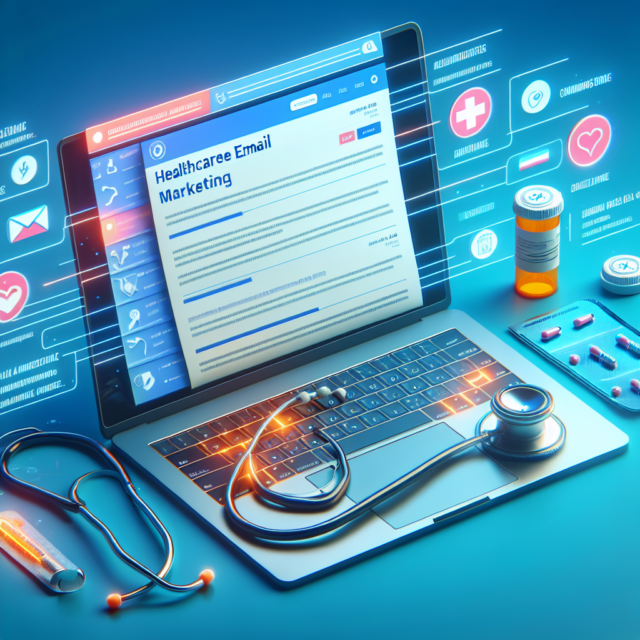In today’s digital world, healthcare email marketing is more than just sending out newsletters. It’s a strategic tool that, when done right, can boost engagement, nurture relationships with healthcare professionals (HCPs), and increase brand awareness. But how can pharma companies truly maximize the potential of email marketing? Let’s dive in and explore some proven strategies.
Table of Contents
Introduction
Imagine having a direct line of communication to your most important stakeholders: healthcare professionals, patients, and caregivers. That’s the power of healthcare email marketing. But to truly make an impact, you need a strategic approach that’s both engaging and compliant. Let’s break down the essential strategies every pharma marketing executive should know.
Why Email Marketing Is Crucial in Pharma
Email marketing isn’t just another tool in your marketing arsenal—it’s a necessity. Why? Because it’s personal, direct, and measurable. In an industry as specialized as healthcare, personalized communication can make or break your relationship with HCPs and patients.
- High Engagement Rates: Studies show that healthcare emails have higher open rates compared to other industries.
- Cost-Effective: Email marketing provides a significant return on investment, especially when targeting niche audiences.
Consider This: Think of email marketing as a well-oiled machine. When every part works together, it drives your brand forward efficiently.
Segmenting Your Audience
Not all audiences are created equal, and treating them as such is a missed opportunity. Segmenting your email lists can significantly increase engagement and conversion rates.
- By Specialty: Target oncologists differently than cardiologists.
- By Behavior: Customize emails based on previous engagement or content interaction.
Tip: Use your CRM data to create detailed audience segments and tailor your messages accordingly.
Crafting Compelling Subject Lines
Your subject line is the first thing recipients see. If it doesn’t grab their attention, your email won’t get opened.
- Make It Urgent or Intriguing: Use action words or pose a question.
- Keep It Short: Aim for 6-10 words. Remember, mobile devices often truncate longer lines.
Example: Instead of “Learn About Our New Drug,” try “New Pain Relief Option for Your Patients.”
Personalization: Make It Personal
Would you rather read a generic message or something tailored just for you? Personalization goes beyond just using someone’s name. It means delivering content that feels relevant and timely.
- Use Dynamic Content: Include details like the recipient’s specialty or recent activities.
- Behavioral Triggers: If an HCP recently downloaded a whitepaper, send a follow-up email with related resources.
Remember: The more personalized the experience, the stronger the connection.
Providing Value-Driven Content
Why should someone read your email? If it’s purely promotional, you’ve lost them. Always aim to provide value.
- Educational Resources: Offer research findings, case studies, or insights on trending treatments.
- Webinar Invitations: Engage HCPs with exclusive opportunities to learn and interact.
Visit: Check out Pharma Marketing News for content ideas that resonate with your audience.
Using Automation for Efficiency
Automation can make your life easier and your campaigns more effective. Tools like automated drip campaigns can nurture leads over time, keeping your brand top-of-mind.
- Welcome Series: Send a sequence of onboarding emails to new subscribers.
- Event Reminders: Automate reminders for webinars or conferences.
Analogy: Think of automation as your marketing assistant, working 24/7 to deliver the right message at the right time.
Compliance and Privacy Matters
Healthcare marketing comes with its own set of rules. Staying compliant with regulations like HIPAA and GDPR is non-negotiable.
- Consent: Always obtain permission before adding someone to your email list.
- Data Security: Use secure email platforms to protect sensitive information.
External Resource: Learn more about email marketing compliance at Mayo Clinic’s Compliance Guidelines.
Analyzing and Optimizing Campaigns
Once your email goes out, the work isn’t over. Analyzing your campaign performance is crucial for long-term success.
- Key Metrics: Open rates, click-through rates, and conversions.
- A/B Testing: Experiment with different subject lines or call-to-action (CTA) buttons to see what performs best.
Pro Tip: Use data to continuously refine your strategy for better results.
Case Study: Successful Pharma Email Campaigns
Sometimes, seeing is believing. Here’s a quick look at a successful email campaign in pharma:
- Objective: Increase awareness about a new diabetes drug.
- Strategy: Personalized emails segmented by HCP specialty, offering relevant research and patient outcomes.
- Results: 30% higher open rates and a 15% increase in engagement compared to standard campaigns.
Lesson Learned: Tailored, value-driven content can transform engagement.
Conclusion
Healthcare email marketing is both an art and a science. By segmenting your audience, personalizing content, and staying compliant, you can create campaigns that drive real results. Remember, it’s not just about selling—it’s about building meaningful connections. Ready to transform your email strategy?
FAQs
- How often should I send emails to healthcare professionals?
Aim for consistency without overwhelming your audience. Monthly or bi-weekly emails work well. - What’s the best way to personalize email content?
Use dynamic content and segment your lists based on the recipient’s specialty and behavior. - How can I ensure my emails are compliant with regulations?
Always get consent, secure data, and work with a legal team to review your campaigns. - What type of content resonates most with HCPs?
Educational content like research findings, case studies, and treatment guidelines often perform best. - Can automation hurt my email marketing efforts?
Not if used wisely. Automation can enhance efficiency but always review and personalize where possible.

